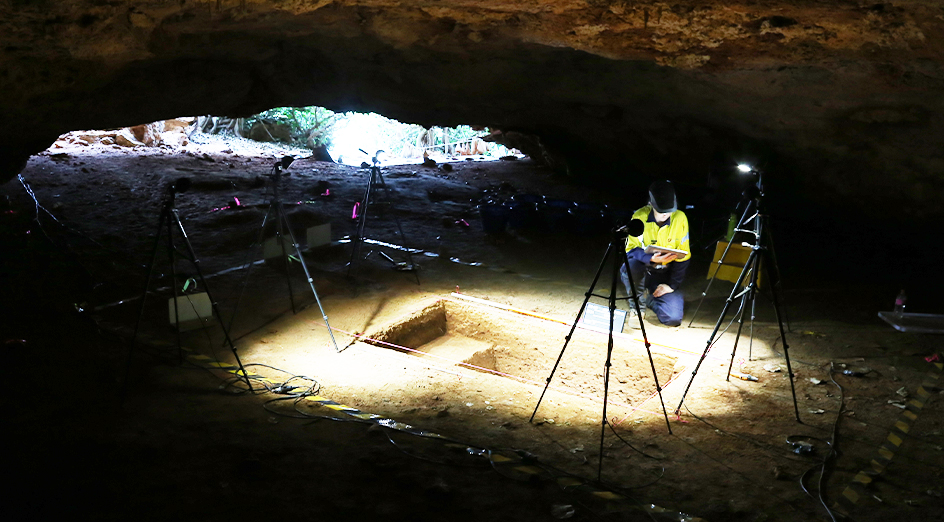Thousands of artefacts, largely made from imported stone materials, have provided a unique record of Aboriginal occupation of the North West Shelf from Barrow Island in Western Australia’s Pilbara region.
"Barrow Island is unique in preserving an early and intact record of Aboriginal occupation over an area which functioned as a high plateau on the now-drowned coastal plain."
Professor Peter Veth, UWA School of Social Sciences
The study, led by Sacramento State University with researchers from The University of Western Australia and Traditional Owners, has been published in the Quaternary Science Reviews.
The North West Shelf is a continental shelf region of the Indian Ocean located between North West Cape and Dampier with Barrow Island, located 60 km from the nearest coastline, hosting a unique terrestrial and marine ecosystem.
Archaeologist Professor Peter Veth, from UWA’s School of Social Sciences, said 10 years’ analysis of 50 ancient habitation sites recorded across Barrow Island discovered the artefacts had largely been made from stone not found on the ancient limestone island.
“The stone used to make the artefacts is found today on the mainland 60 to 90 kms from the island,” Professor Veth said.
“These materials have been heavily used for a range of woodworking, food processing and plant processing activities.”

Image: Careful excavations on Barrow Island.
Researchers found the sites were occupied when the island was joined to the mainland before rising seas cut it off about 7,000 years ago.
“Previous work on Barrow Island shows occupation began 50,000 years ago with evidence of people using both marine resources and animals and plants from the coastal plain,” Professor Veth said.
“Barrow Island is unique in preserving an early and intact record of Aboriginal occupation over an area which functioned as a high plateau on the now-drowned coastal plain.
“It is a highly significant time-capsule of past Aboriginal use of the North West Shelf.”
Thalanyji Traditional Owners involved in the study see the artefacts as an important record of their ancestral use of, and connection to, the island and use of the now-drowned coastal plain.
Media references
Professor Peter Veth, UWA School of Social Sciences, 0408 094 607
Liz McGrath, UWA Media Advisor, 08 6488 7975
